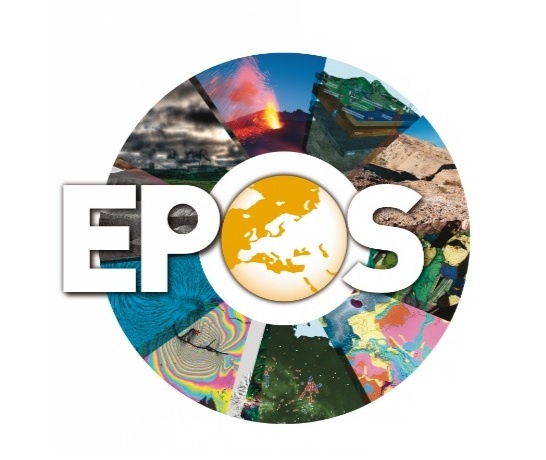EPOS project : distributed research data infrastructure for European solid Earth science
01/02/2017


European Research Infrastructure on Solid Earth (EPOS) is the European Union’s Horizon 2020 research and innovation programm funded project. As a long-term integration plan of national existing Research Infrastructures (RIs), EPOS aims to provide all researchers of its community with basic e-science services relevant to solid Earth science, and to exploit the “core services” provided by EUDAT to build a robust e-infrastructure that uses state-of-the-art technologies.
|
“By providing an integrated solid Earth Sciences research infrastructure, giving researchers better access to a wider range of Earth Science data and tools for working with that data, EPOS will help the Earth science community to provide answers to important societal questions concerning geo-hazards and those geodynamic phenomena (including geo-resources) relevant to the environment and human welfare”, - A solid foundation for earth sciences: EUDAT interviews Massimo Cocco of EPOS. |
The establishment of EPOS will foster worldwide interoperability in Earth Sciences and provide services to a broad community of users. EPOS aims to be an effective coordinated European-scale monitoring facility for solid Earth dynamics taking full advantage of new e-science opportunities.
The adoption of EUDAT's research data management and infrastructure solutions is important for EPOS as it will ensure optimum standardization across the participating sub-communities within the solid Earth sciences.
Data acquired by EPOS (and replicated onto EUDAT resources) should be discoverable and promptly made accessible. To date, EPOS has identified a number of possible applications of EUDAT services, which contribute significantly by automating many technical chores, simplifying the daily work of our researchers and improving overall efficiency.
EUDAT - EPOS use cases:
|
EUDAT- B2SAFE |
is currently being used to facilitate long-term preservation of seismological datasets that are enriched with persistent identifiers (PIDs) and replicated onto external data facilities. EPOS plans to extend this use case in order to improve access to the data and increase the likelihood of new discoveries using the data. |
|
EUDAT-B2STAGE |
is currently being used to simplify the staging of datasets onto/from computational resources, thereby minimizing data transfers. |
|
EUDAT - B2ACCESS |
is a viable solution to simplify and harmonize the authentication and authorization processes used at EPOS different sites. B2ACCESS will enable all EPOS members to use the same credentials to access all EPOS databases and networks. |
|
EUDAT - B2SHARE |
is used to publish the results of experiments and make them available to colleagues. |
|
EUDAT - B2DROP |
aims to minimize data flows to/from users’ machines by creating a personal user space in the “cloud” where temporary requests can be stored. |
# Download the presentation for more information on the EPOS - EUDAT collaboration.
Although EPOS is seeking to exploit the services provided by EUDAT as much as possible, it is also developing its own solution for the purpose of achieving maximum interoperability.
The ultimate goal of the EPOS project is to create an internationally recognised European research infrastructure that will open new horizons for European research in solid Earth science. Seamless access to national and European data and services will attract a variety of diverse users and benefit society as a whole in tackling major societal challenges stemming from management of natural resources, including safety, natural hazards prevention and risk mitigation. The EPOS community and participating sub-communities within the solid Earth sciences are among the main beneficiaries of the outcomes of this collaboration.
|
EUDAT’s goal is to build a Collaborative Data Infrastructure (CDI) as a pan-European solution to the challenge of data proliferation in Europe’s scientific and research communities. EUDAT adopts globally unique Handles to identify digital objects within the CDI. The Handle System, the system behind DOI and other well-known identification mechanisms, is administered by the new Digital Object Naming Authority (DONA) and is used worldwide. EUDAT works with the European PID Consortium (EPIC) to ensure all data objects registered in the CDI receive a unique, persistent Handle. All participating sites in the CDI are encouraged to adopt open licences for access to their data collections: Creative Commons v4.0, particularly: - the Creative Commons Attribution License 4.0 International (CC BY 4.0). Open Data Commons, particularly: - the Open Data Commons Open Database License (ODbL) v1.0; - the Open Data Commons Attribution License v1.0. As part of its mission to help researchers and research communities manage and preserve their data, EUDAT has begun work with the world-recognized Digital Curation Centre on a version of their widely-used DMPonline tool which will capture the H2020 guidelines in a data management planning tool tailored to the emerging needs of European research. |
Related contents:
- agINFRA: a research data hub for agriculture, food and the environment (OKAD-F1000Research)
- Put FAIR principles into practice and enjoy your data!
